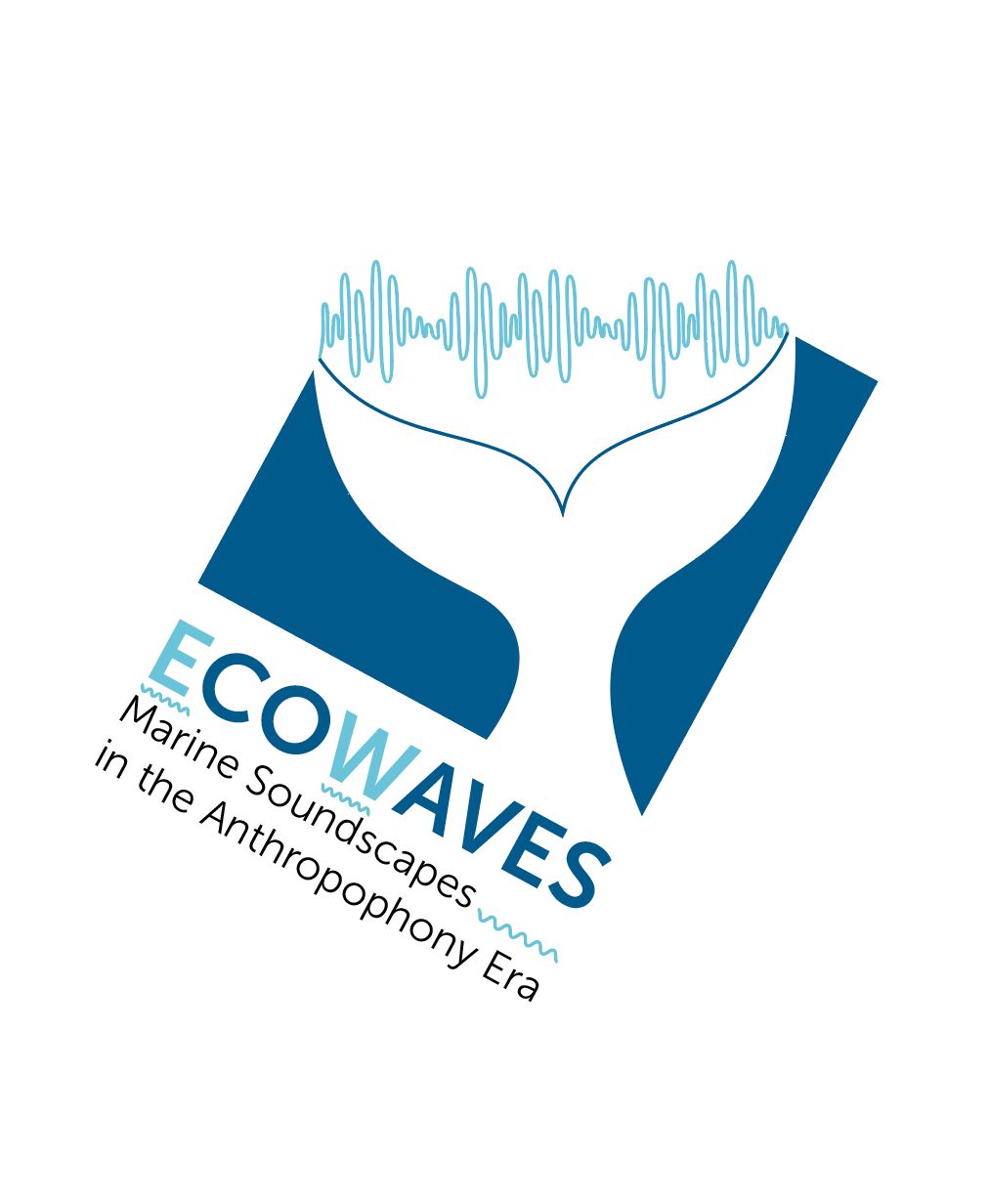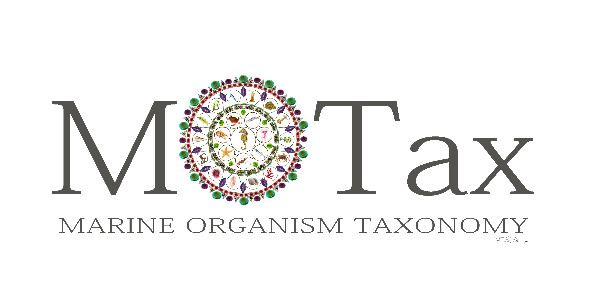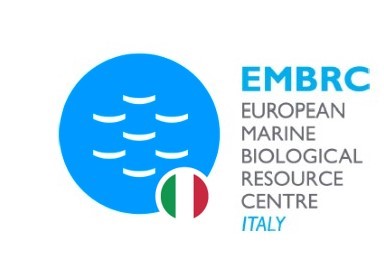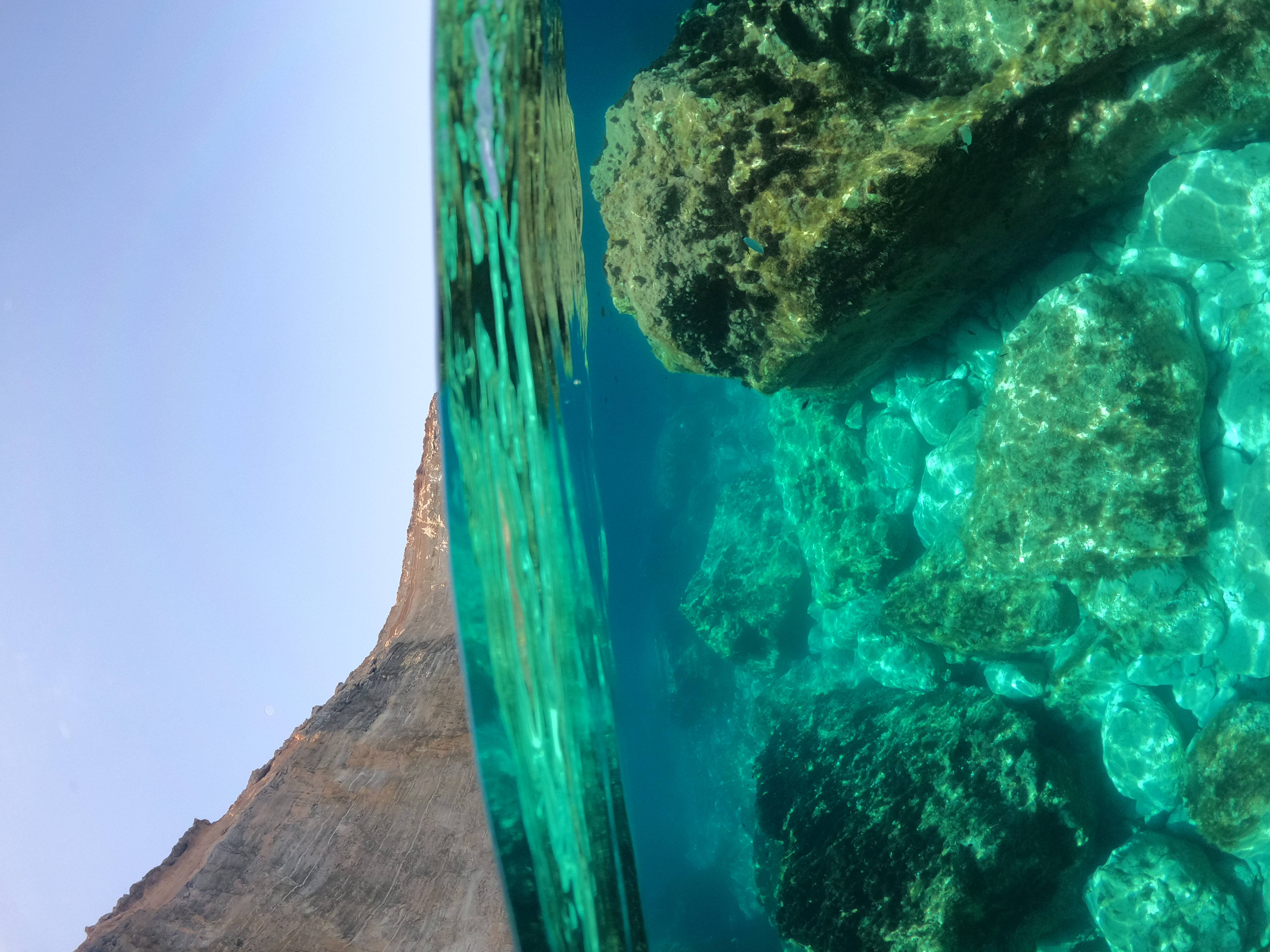 Tenders and Job Opportunities
Tenders and Job Opportunities Job calls
Job calls Scholarships and research fellowships
Scholarships and research fellowships Open Calls
Open Calls ENGLISH
ENGLISH Pages
Pages
Pages
Studio e Monitoraggio delle Praterie di Posidonia oceanica - dal 8 - 12 settembre 2025
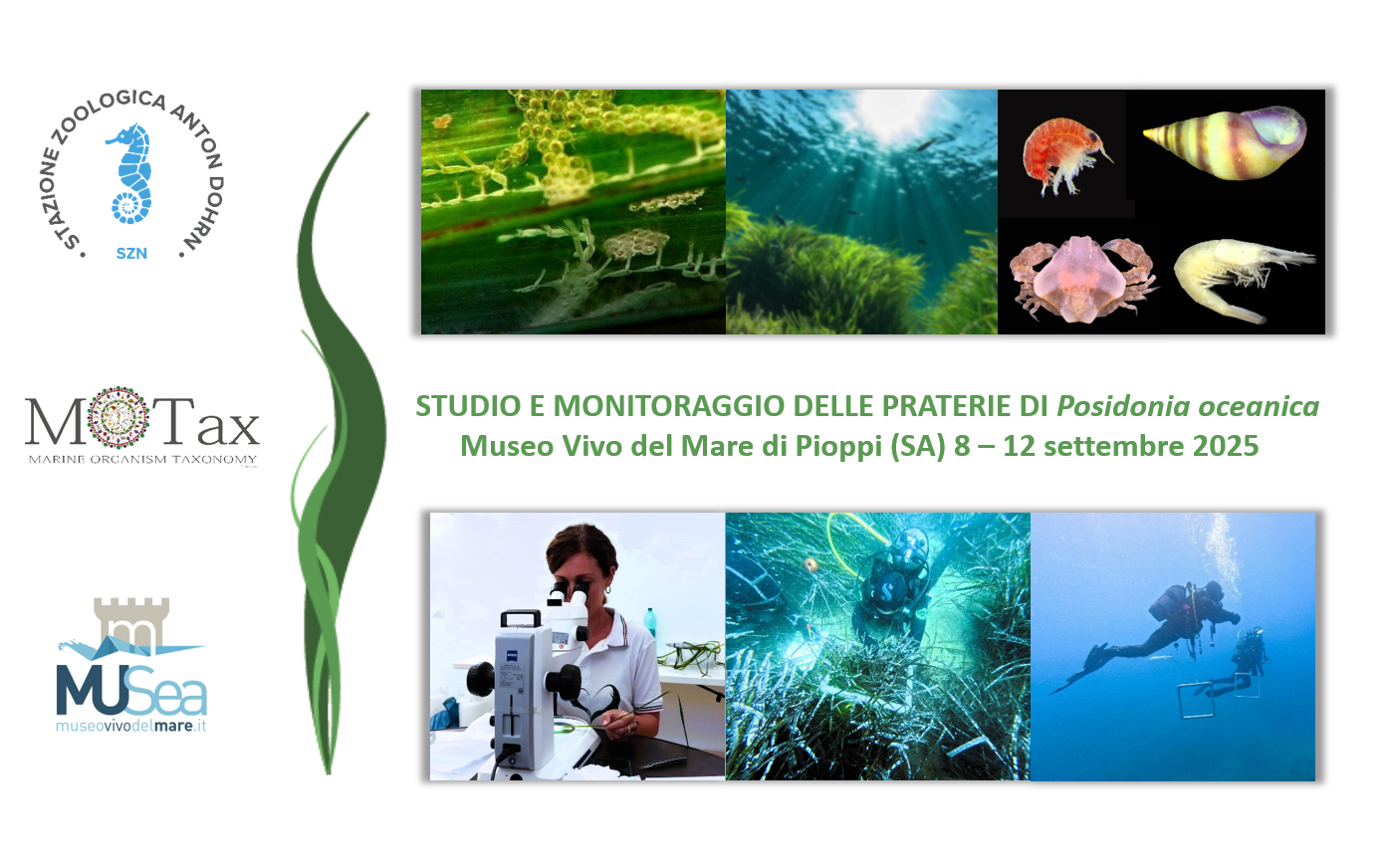 L’Unità MOTax (Marine Organism Taxonomy), in collaborazione con il Museo Vivo del Mare “MUSea”, organizza la quinta edizione della Summer School: “Studio e Monitoraggio delle Praterie di Posidonia oceanica”.
L’Unità MOTax (Marine Organism Taxonomy), in collaborazione con il Museo Vivo del Mare “MUSea”, organizza la quinta edizione della Summer School: “Studio e Monitoraggio delle Praterie di Posidonia oceanica”.
Il corso prevede lezioni frontali, immersioni subacquee ed attività di laboratorio; è rivolto a chi è in possesso di un’adeguata formazione naturalistica e che intenda acquisire le conoscenze necessarie per svolgere analisi sulle praterie di Posidonia oceanica: dalla stesura del piano di campionamento a tutte le attività in mare, dalle analisi di laboratorio alle attività di elaborazione statistica dei dati.
Identificazione dei limiti della prateria, misure di densità, campionamento, fenologia, studio degli epifiti e della fauna associata, queste alcune delle attività che svolgerà il corsista acquisendo manualità e metodologie per il monitoraggio delle praterie.
La Summer School si prefigge l’ulteriore obiettivo di formare i partecipanti all’applicazione della metodologia PREI, Posidonia Rapid Easy Index, strumento metodologico d’indagine dello stato delle praterie di Posidonia oceanica per l’implementazione territoriale delle Direttive Comunitarie Direttiva Quadro Sulle Acque (2000/60/CE) e Direttiva Strategia Marina (2008/56/CE), ISPRA.
Il corso, diretto dal dott. Luigi Valiante direttore scientifico del Museo Vivo del Mare, si avvale della collaborazione della Stazione Zoologica Anton Dohrn con la partecipazione del dott. Gabriele Procaccini Dirigente di Ricerca del Dipartimento Ecologia Marina Integrata e del dott. Paolo Fasciglione dell’Unità specializzata in tassonomia MOTax.
La durata è di 5 giorni, le lezioni frontali e le attività di laboratorio si svolgono presso il Museo Vivo del Mare “MUSea” che ha sede al Palazzo Vinciprova di Pioppi (Pollica, SA), mentre le attività di campo (immersioni subacquee) saranno effettuate nell’Area a Tutela “la Punta” di Pioppi, nel Parco Nazionale del Cilento, Vallo di Diano e degli Alburni.
Lezioni frontali:
• Fisiologia, ecologia, ruolo ecosistemico, gestione della fascia costiera, conservazione
• Resilienza e capacità di adattamento
• Analisi dei dati, applicazione dell’indice PREI con dimostrazioni pratiche
Immersioni subacquee sulla prateria:
• Identificazione dei descrittori fisiografici (tipologia prateria e sua distribuzione, identificazione limiti superiore ed inferiore e tipologia)
• Descrittori strutturali (misure di densità e valutazione dell’indice di copertura)
• Tecniche di campionamento e prelievo dei fasci fogliari
• Campionamento della fauna associata ai rizomi (sorbona)
• Campionamento della fauna vagile associata alle foglie (retino manicato)
Attività di laboratorio:
• Descrittori morfometrici (fenologia)
• Analisi della comunità epifita
• Studio della fauna vagile
Docenti
• Luigi Valiante (Museo Vivo del Mare di Pioppi)
• Gabriele Procaccini (Stazione Zoologica Anton Dohrn Napoli)
• Paolo Fasciglione (Stazione Zoologica Anton Dohrn Napoli)
• Michele Scardi (Università degli Studi di Roma Tor Vergata)
Quota di partecipazione:
450,00 euro, la quota comprende:
5 gg di corso presso il Museo Vivo del Mare di Pioppi (Palazzo Vinciprova):
• attività scientifiche in immersione sulla prateria di Posidonia oceanica;
• attività di laboratorio presso le sale attrezzate del Centro Velico Anemos di Pioppi;
• lezioni frontali da parte del personale scientifico;
• materiale didattico;
• cena sociale/coffee break
BORSA DI STUDIO EUGENIO FRESI
Per il 2025 sono previste due borse di studio per la partecipazione al corso finanziate dal Rotary Club di Battipaglia.
Invio candidature, modalità di partecipazione alle borse ed un "ricordo" del professore Eugenio Fresi al link sotto:
allegato con il bando
Scadenza presentazione domande per la partecipazione alle borse 31 maggio 2025
Organizzazione e coordinamento: Paolo Fasciglione (SZN), Luigi Maria Valiante (MUSea)
Info e domanda di partecipazione alla summer school:
• www.centrostudisealab.it
• This email address is being protected from spambots. You need JavaScript enabled to view it.
• This email address is being protected from spambots. You need JavaScript enabled to view it.
Fine iscrizioni: 15 luglio 2025
Conferma partecipazione e pagamento: 31 luglio 2025
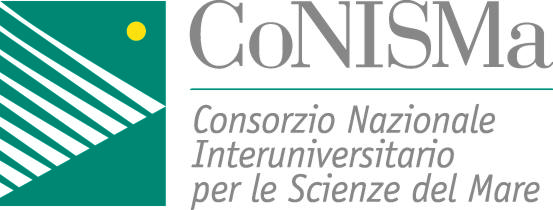

PROSHARKS
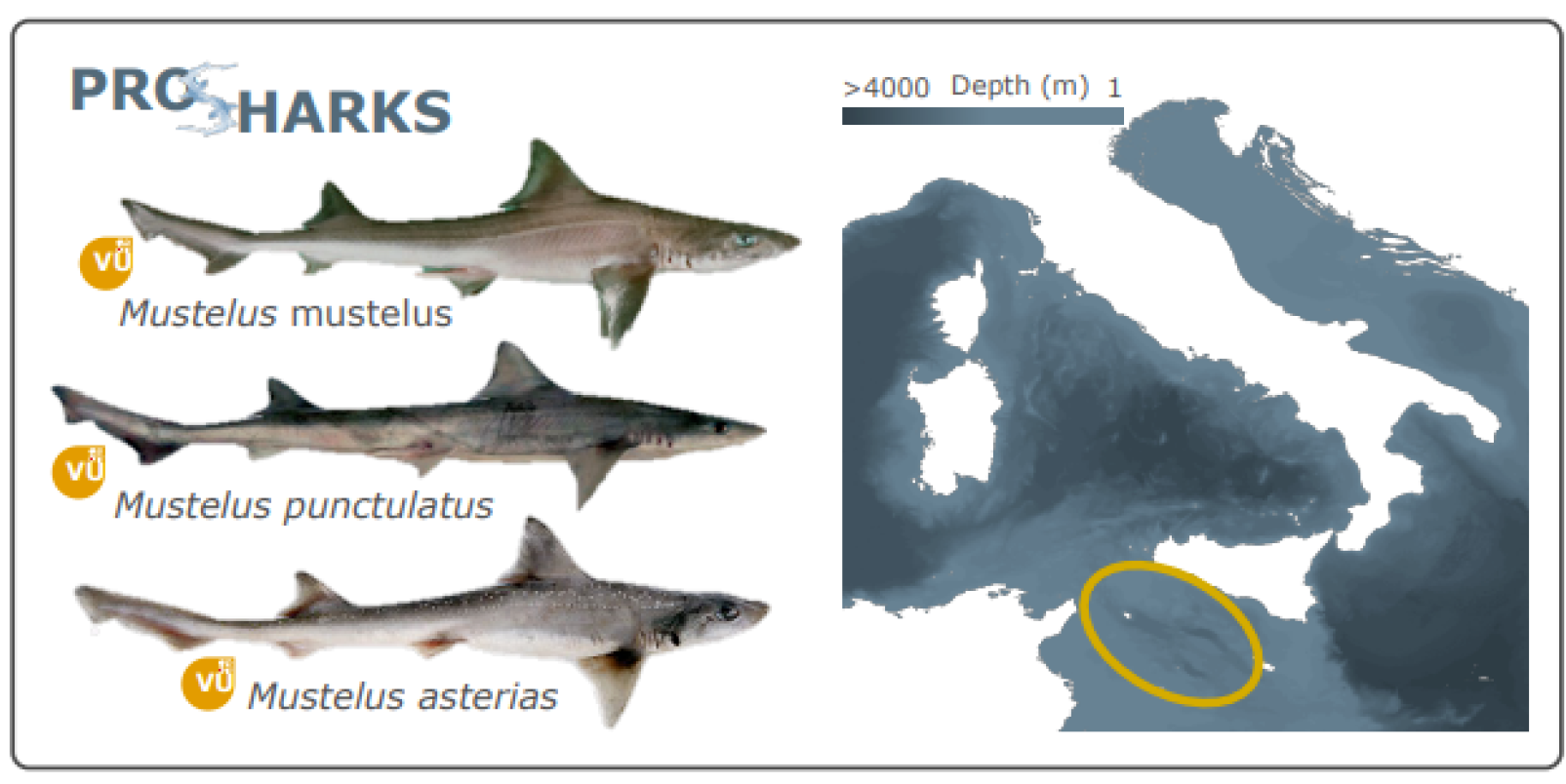
Living on the extinction edge: bridging knowledge gaps to PROtect threatened coastal SHARKS in the central Mediterranean Sea
The PROSHARKS project, funded by the Ministry of University and Research (MUR) under the PRIN 2022 program, is dedicated to the conservation of demersal sharks in the Mediterranean. Specifically, PROSHARKS focuses on the three species of smooth-hound sharks (Mustelus mustelus, M. punctulatus, and M. asterias), which are currently considered at risk of extinction in the Mediterranean.
The project will investigate the population structure, connectivity, and spatial and temporal trends of these three species in the Strait of Sicily. This marine area has been globally recognized as an Important Shark and Ray Area (ISRA) by the IUCN (International Union for Conservation of Nature) due to its critical role in biodiversity and the abundance of chondrichthyan species.
PROSHARKS will adopt a multidisciplinary approach, integrating fisheries data, satellite tagging data, genetic and isotopic analyses, and local ecological knowledge (LEK) from fishermen to identify temporal trends, habitat preferences, and spatial connectivity of these species within the Strait of Sicily.
The data collected throughout the project will be used to achieve specific objectives, including:
a) Identifying key areas essential for the species' life cycles and conservation through the development of Species Distribution Models (SDMs);
b) Defining the genetic structure of populations and the connectivity between different groups within the study area (e.g., between the Italian and Tunisian coasts);
c) Assessing the impact of climate change on the future distribution of these species;
d) Defining conservation measures and raising awareness among fishermen and the general public about the ecological importance of sharks in maintaining the balance and functionality of the marine ecosystem.
The project is coordinated by the Stazione Zoologica Anton Dohrn in collaboration with the Polytechnic University of Marche and the CNR IRBIM.
What We Do
SZN coordinates the project and will be primarily involved in the tagging campaign of the species and the analysis of acquired satellite data. Additionally, it will study population trends through interviews with fishermen and identify fisheries management measures aimed at restoring the populations of gulper sharks in the Strait of Sicily.
Partners
SZN, CNR-IRBIM (Mazara del Vallo), Polytechnic University of Marche
Research Area
Marine Ecology
SZN Role
Coordinator
Principal Investigator
Francesco Colloca
Project Manager
Francesco Colloca
Project Duration
24 months: February 2025 – February 2027
Funding Institutions
MUR, PRIN 2022 Call, LS8 sector “Environmental Biology, Ecology, and Evolution”
Involved Personnel
Francesco Colloca, Principal investigator
Manfredi Di Lorenzo, Experienced Researcher
Stefano Moro, Post-doc
Prizes and awards
Stazione Zoologica Anton Dohrn is pleased to honor the memory of Aldo Fasolo and Paolo Brancaccio through two prestigious awards dedicated to young researchers. These recognitions represent a tribute and an incentive for the new generations of scientists.
The awards aim to enhance excellence in research by promoting innovation and critical thinking. They are aimed at young scholars who, with their work, demonstrate dedication and passion for science, embodying the values and legacy of Fasolo and Brancaccio.
Discover the details on how to participate, the selection criteria and the deadlines to submit your application.

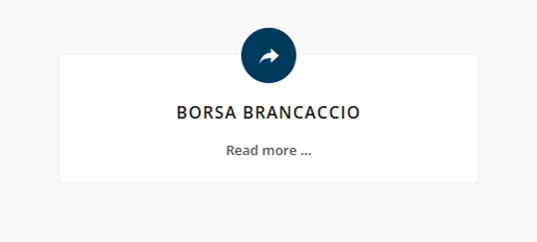
Summer School 2025 ECOWAVES
Marine Soundscapes in the Anthropophony Era
Naples, 26th-30th May 2025
Darwin-Dohrn Museum, Villa Comunale, 80121, Naples, Italy
This summer school offers participants a comprehensive introduction to the application of acoustics in ecological studies. Attendees will explore the science of acoustic waves in seawater, gaining foundational knowledge in the physics of sound and the use of cutting-edge instruments to analyze marine soundscapes. The program covers innovative methodologies, from passive acoustic monitoring to advanced technologies such as autonomous underwater vehicles and AI-driven signal detection. Participants will also learn how marine organisms use sound for essential biological functions and examine the effects of human-generated noise pollution on coastal and oceanic systems. Through a blend of theoretical knowledge and hands-on training, the course will provide the tools to assess the role of sound and the impacts of noise on the physiology and behavior of marine organisms. The program will further explore how these effects influence ecological communities, emphasizing the application of mesocosm experiments and field sampling to advance ecological research.
In a nutshell
This summer school is designed to offer a multidisciplinary approach to understanding the critical role of sound in marine ecosystems. It is a unique opportunity to join a growing community of researchers addressing one of the most pressing issues in marine conservation, preparing participants to contribute to innovative solutions and impactful research in this field. The program integrates theoretical and practical sessions, providing participants with comprehensive insights into marine acoustic ecology, technological tools, and effective research and communication strategies.
Target Audience
Open to graduate and PhD students, postdocs, and early-career researchers from the following fields:
(i) Biology and ecology—those who want to learn more about underwater acoustics for their research.
(ii) Physics and engineering—those passionate about marine science and environmental conservation.
Theoretical lessons
- Physics of underwater sound and measurement techniques.
- Underwater acoustics and the role of sound from invertebrates to megafauna.
- State-of-the-art acoustic technologies for monitoring biodiversity and environmental changes.
- The impacts of anthropogenic noise on marine ecosystems and species.
- Communicating acoustic ecology to the public through educational tools and outreach.
Practical lessons
- Setup and calibration of hydrophones and recording systems.
- Identification of sound sources and species-specific vocalizations.
- Use of software for data visualization and soundscape analysis.
- In tank experiments to record effects of noise on invertebrates.
Lecturers
Dr. Francesco Caruso (Stazione Zoologica Anton Dohrn)
Dr. Filomena Ristoratore (Stazione Zoologica Anton Dohrn
Dr. Francesca Rossi (Stazione Zoologica Anton Dohrn)
Dr. Marco Signore (Stazione Zoologica Anton Dohrn)
Prof. Giovanni Zambon (University of Milano-Bicocca)
Dr. Salvatore Viola (National Institute for Nuclear Physics)
Prof. Lucia Di Iorio (University of Perpignan)
Prof. Lucia Manni (University of Padua)
Dr. Marios Chatzigeorgiou (University of Bergen)
Prof. Livio Favaro (University of Turin)
Dr. Virginia Sciacca (Italian National Research Council)
The course is open to 20 participants.
DOWNLOAD THE POSTER HERE: Summer School 2025 ECOWAVES
IMPORTANT INFORMATION
Applications: deadline 4 April.
Participants will be notified by 15 April.
Registration and payment are due by 30 April.
Fee: 250 euro per person (coffee breaks, lunches, icebreaking and social dinner included)
ORGANIZERS: Francesco Caruso, Filomena Ristoratore, Francesca Rossi, Marco Signore
Info: This email address is being protected from spambots. You need JavaScript enabled to view it.
Publications 2024
Virgili R. Fasciglione P., Tiralongo F., Pannone R., Palomba M., Santoro M., De Luca P., Crocetta F. (2024). Interdisciplinary approaches at early invasion stages maximise the evidence on human-induced and climate-driven fish dispersal. Hydrobiologia DOI: https://doi.org/10.1007/s10750-024-05537-y
Campese L., Russo L., Abagnale M, Alberti A, Bachi G, Balestra C, Bellardini D, Buondonno A, Cardini U, Carotenuto Y, Checcucci G, Chiusano ML, D’ambra I, d’Ippolito G, Di Capua I, Donnarumma V, Fontana A, Furia M, Galarza-Verkovitch D, Gallia R, Labadie K, Leone S, Licandro P, Longo A, Maselli M, Merquiol L, Murano C, Oliveira OH, Passarelli A, Percopo, I., Perdereau A, Piredda R, Raffini F, Roncalli V, Ruscheweyh HJ, Russo E, Saggiomo M, Santinelli C, Sarno D., Sunagawa S, Tramontano F, Trano AC, Uttieri M, Wincker P, Zampicinini G, Casotti R, Conversano F, D’Alelio D, Iudicone D, Margiotta F, Montresor M. (2024). The NEREA Augmented Observatory: an integrative approach to marine coastal ecology. Scientific Data 11, 989 https://doi.org/10.1038/s41597-024-03787-y
Bianchi A.R, Di Capua I, Guerretti, V. et al. (2024). The poly(ADP-ribosyl)ation system in the crustacean copepod Temora stylifera (Dana, 1853–1855) from a coastal area of the Mediterranean Sea: a new biomarker of the health status. Euro-Mediterranean Journal for Environmental Integration https://doi.org/10.1007/s41207-024-00625-w
Di Capua I, Luise F., Zampicinini G., CarotenutoY, Roncalli V., R. Piredda (2024) Integrative approach to monitoring metazoan diversity and distribution in two Mediterranean coastal sites through morphology and organismal eDNA. Scientific Report 14, 19291 https://doi.org/10.1038/s41598-024-69520-2
Mule A.*, Neri F.*, Romagnoli T., Accoroni S., Caridi F., Campanella A., Ubaldi M., Sarno D., Totti C. (2024). Seasonal variability of epipelic microphytobenthos community in two subtidal areas of the Northern Adriatic Sea. Mediterranean Marine Science, 25 (3), 650-665. https://doi.org/10.12681/mms.35785
Ruggiero M.V., Buffoli M., Wolf K.K.E., D’Alelio D., Di Tuccio V., Lombardi E., Manfellotto F., Vitale L., Margiotta F., Sarno D., John U., Ferrante M.I., Montresor M. (2024) Multiannual patterns of genetic structure and mating type ratios highlight the complex bloom dynamics of a marine planktonic diatom. Scientific Reports 14, 6028. https://doi.org/10.1038/s41598-024-56292-y
Vannini G*, Di Capua I*, (2024). Collective Paper New records of rarely reported species in the Mediterranean Sea. Mediterranean Marine Science. Vol. 25 No. 1. http://doi.org/10.12681/mms.37214
Uttieri M, Carotenuto Y, Di Capua I, V Roncalli (2024). Special Issue of Ecology of Marine Zooplankton. Journal of Marine Science and Engineering, https://doi.org/10.3390/jmse11101875
Gómez F., Roselli L., Zhang H., Lin S. (2024) Misidentifications of the bloom-forming dinoflagellates Gymnodinium litorale and Margalefidinium polykrikoides in the Mediterranean Sea. Regional Studies in Marine Science, 70, 103376
Houliez E., Mente M.S., Sarno D., Scalco E., Romeo T., Passarelli A., Roselli L. (2024). Deploying the Imaging FlowCytobot in the Mediterranean Sea and developing a trait-based classifier for high-frequency screening of phytoplankton traits and dynamics. IEEE International Workshop on Metrology for the Sea; Learning to Measure Sea Health Parameters (MetroSea), doi: 10.1109/MetroSea62823.2024.10765619
Borrelli F., Giugliano G., Behal J., Pirone D., Roselli L., Sardo A., Houliez E., Zupo V., Costantini M., Miccio L., Memmolo P., Bianco V., Ferraro P. (2024). Investigation of Marine Phytoplankton by In-Flow Holographic Tomography. 2024 IEEE International (MetroSea), doi: 10.1109/MetroSea62823.2024.10765697
Aguzzi J, Thomsen L, Flögel S, Robinson NJ, Picardi G, Chatzievangelou D, Bahamon N, Stefanni S, Grynò J, Fanelli E, Corinaldesi C, Del Rio Fernandez J, Calisti M, Mienis F, Chatzidouros E, Costa C, Violino S, Tangherlini M, Danovaro R. (2024). New technologies for monitoring and upscaling marine ecosystem restoration in deep-sea environments. Engineering 34, 195-211, https://doi.org/10.1016/j.eng.2023.10.012.
Buschi E, Dell’Anno A, Tangherlini M, Candela M, Rampelli S, Turroni S, Palladino G, Esposito E, Lo Martire M, Musco L, Stefanni S, Munari C, Fiori J, Danovaro R, Corinaldesi C. (2024). Resistance to freezing conditions of endemic Antarctic polychaetes is enhanced by cryoprotective proteins produced by their microbiome. Science Advances, 10(25), eadk9117.
Varrella S, Barone G, Corinaldesi C, Giorgetti A, Nomaki H, Nunoura T, Rastelli E, Tangherlini M, Danovaro R, Dell’Anno A. (2024). Fungal Abundance and Diversity in the Mariana Trench, the Deepest Ecosystem on Earth. Journal of Fungi, 10(1), 73.
Russo L, Bellardini D, De Luca D, Del Gaizo G, Zampicinini G, Battaglia P, Liguori G, De Luca P, D’Alelio D. Zoom into a twilight zone: a biodiversity survey of the Dohrn canyon (Mediterranean sea) through environmental DNA metabarcoding. Community Ecology. https://doi.org/10.1007/s42974-024-00207-4 (2024).
Bellardini D, Russo L, Di Tuccio V, De Luca D, Del Gaizo G, Zampicinini G, Kokoska F, Botte V, Colloca F, Conversano F, De Luca P, Iudicone D, Margiotta F, Saviano S, Vassallo P, Cianelli D, D’Alelio D. Spatiotemporal changes of pelagic food webs investigated by environmental DNA metabarcoding and connectivity analysis. Phil Trans R. Soc. B 379: 20230178. https://doi.org/10.1098/rstb.2023.0178 (2024).
De Felice B, De Luca P, Montanino C, Mallardo M, Babino G, Mattera E, Sorbo R, Ragozzino G, Argenziano G, Daniele A, Nigro E. LncRNA microarray profiling identifies novel circulating lncRNAs in hidradenitis suppurativa. Molecular Medicine Reports 30:112. https://doi.org/10.3892/mmr.2024.13236 (2024).
Annona G, Liberti A, Pollastro C, Spagnuolo A, Sordino P, De Luca P. Reaping the benefits of liquid handlers for high-throughput gene expression profiling in a marine model invertebrate. BMC Biotechnology 24:4. https://doi.org/10.1186/s12896-024-00831-y (2024).
Limatola N, Chun JT, Schmitt JL, Lehn JM, Santella L. (2024) The Effect of Synthetic Polyamine BPA-C8 on the Fertilization Process of Intact and Denuded Sea Urchin Eggs. Cells 13 (17), 1477
Mangini M, Limatola N, Ferrara A, Coppola G, Chun JT, De Luca AC, Santella L. (2024) Application of Raman spectroscopy to the evaluation of F-actin changes in sea urchin eggs at fertilization. Zygote 2 (1), 38-48
Bosso L, Panzuto R, Balestrieri R, Smeraldo S, Chiusano ML, Raffini F, Canestelli D, Musco L, Gili C. (2024) Integrating citizen science and spatial ecology to inform management and conservation of the Italian seahorses. Ecological Informatics 79, 102402
Ma X, Vanneste S, Chang J, Ambrosino L, Barry K, Bayer T, Bobrov AA, Boston LB, Campbell JE, Chen H, Chiusano ML, Dattolo E, Grimwood J, He G, Jenkins J, Khachaturyan M, Marin-Guirao L, Mesterhàzy A, Muhd DD, Pazzaglia J, Plott C, Rajaserkar S, Rombauts S, Ruocco M, Scott A, Tan MP, Van de Velde J, Vanholme B, Webber J, Wong LL, Yan M, Sung YY, Novikova P, Schmutz J, Reusch TBH, Procaccini G, Olsen JL, Van de Peer Y. (2024) Seagrass genomes reveal ancient polyploidy and adaptations to the marine environment. Nature Plants, 10, 240-255
Marotta, P., Sabatino, V., Ambrosino, L., Miralto, M., & Ferrante, M. I. (2024). De novo transcriptome assembly of a lipoxygenase knock-down strain in the diatom Pseudo-nitzschia arenysensis. Scientific Data, 11(1), 522.
J Berlinghof, LM Montilla, F Peiffer, GM Quero, U Marzocchi, TB Meador, F Margiotta. Accelerated nitrogen cycling on Mediterranean seagrass leaves at volcanic CO2 vents. Communications Biology 7 (1), 341
M Bo, A Costa, M Coppari, F Enrichetti, G Bavestrello, A Di Caro, S. Canese, F Betti. Diel rhythms of fish frequentation in a temperate mesophotic antipatharian forest and sleeping behaviour of the red swallowtail perch Anthias anthias (Linnaeus, 1758). Marine Biology 171 (9), 166
C Misic, F Bolinesi, M Castellano, E Olivari, P Povero, G Fusco, M Saggiomo, O Mangoni. Factors driving the bioavailability of particulate organic matter in the Ross Sea (Antarctica) during summer. Hydrobiologia 851 (11), 2657-2679
E Carlig, D Di Blasi, S Canese, M Vacchi, S Grant, L Ghigliotti. First records of Chionodraco hamatus nests in coastal areas of Terra Nova Bay (Ross Sea): a potential nesting area for the species? Marine Biology 171 (1), 1
V Palummo, G Milisenda, D Pica, S Canese, E Salvati, N Spanò, T Romeo, S Greco. Improving the knowledge base of Vulnerable Marine Ecosystems’ distribution in the Amendolara Bank (Ionian Sea). Mediterranean Marine Science 25 (1), 220-230
G Tarantino, G Motta, P D’Ambrosio, S Felline, V Sbragaglia, S Bevilacqua, P Tedesco, G Scordella, A Terlizzi. Increasing trammel mesh size reduces biomass removal, mitigates discards and increases economic revenue in artisanal fisheries. Frontiers in Marine Science 11, 1267381
Di Bari, D., Pagli, D., Pagli, A., Bogi, C. Malacological notes on a deep-sea environment in the Cretan Sea . Bollettino Malacologico, 60(1), 29–34.
M Toma, G Bavestrello, F Enrichetti, A Costa, M Angiolillo, A Cau, S Canese. Mesophotic and Bathyal Echinoderms of the Italian Seas Diversity 16 (12), 753
D Montoya, E Rastelli, R Casotti, V Manna, AC Trano, C Balestra, C Santinelli, M. Saggiomo, C Sansone, C Corinaldesi, JM Montoya, C Brunet. Microplastics alter the functioning of marine microbial ecosystems. Ecology and Evolution 14 (11), e70041
M Monti-Birkenmeier, T Diociaiuti, F Bolinesi, M Saggiomo, O Mangoni. Microzooplankton and phytoplankton of Ross Sea polynya areas and potential linkage among functional traits. Deep Sea Research Part II: Topical Studies in Oceanography, 105393
M Giusti, M Angiolillo, S Canese, L Tunesi. Mobility of the sea pen Pteroeides spinosum (Ellis, 1764) (Cnidaria: Scleralcionacea: Pennatuloidea) Marine Biodiversity 54 (3), 45
GM Trainiti, V Piscopo, D Cianelli, E Zambianchi. Modelling Oil Spill and Dispersion at Sea from a Double Hull Oil Tanker Following Collision Events 2024 IEEE International Workshop on Metrology for the Sea; Learning to Measure Sea Health Parameters (MetroSea).
D. Di Bari. Natural light vs Artificial light. Effects of light pollution on the bioluminescence of dinoflagellate Pyrocystis lunula. Revista Ciencias Marinas y Costeras 16(2):79-98
A Colletti, A Chiarore, S De Benedictis, E Fabbrizzi, G Franzitta, L Licciardi, S Musumeci, J Neiva, C Silvestrini, S Fraschetti. Occurrence of Phyllariopsis brevipes (C. Agardh) E.C. Henry & G.R. South 1987 in the Gulf of Naples. Marine Ecology, e12828
C Sansone, A Del Mondo, L Pistelli, A Smerilli, M Saggiomo, C Brunet. Opportunities and challenges of diatom cell factory for human health. Diatom Photosynthesis: From Primary Production to High‐Value Molecules, 477-527
M Toma, A Giova, M Bo, S Canese, F Enrichetti, T Romeo, E Salvati, S Greco. Outstanding Aggregation of the Atlantic Brisingid Hymenodiscus coronata (Sars, 1871) (Echinodermata: Asteroidea) in the Strait of Sicily. Diversity 16 (4), 238
B Calcinai, T Marrocco, C Roveta, S Puce, P Montagna, C Mazzoli, S Canese. Porifera Associated with Deep-Water Stylasterids (Cnidaria, Hydrozoa): New Species and Records from the Ross Sea (Antarctica). Journal of Marine Science and Engineering 12 (12), 2317
C Lauritano, E Bazzani, E Montuori, F Bolinesi, O Mangoni, G Riccio, M. Saggiomo. Salinity Stress Acclimation Strategies n Chlamydomonas sp. Revealed by Physiological, Morphological and Transcriptomic Approaches. Marine Drugs 22 (8), 351
F Spagnoli, T Romeo, F Andaloro, S Canese, V Esposito, M Grassi, ED Biscotti, P Giordano, G Bortoluzzi. Seeps and Tectonic Structure of the Hydrothermal System of the Panarea Volcanic Complex (Aeolian Islands, Tyrrhenian Sea). Geosciences 14 (3), 60
M Toma, M Bo, M Bertolino, M Canessa, M Angiolillo, A Cau, F Andaloro, S Canese, S Greco, G Balestrello. Shedding Light on the Italian Mesophotic Spongofauna. Journal of Marine Science & Engineering 12 (11)
A Giova, S Canese, BZ Donelli, T Romeo, S Greco. Structural diversity of Leiopathes glaberrima populations in the strait of Sicily: from pristine to declining forests. Frontiers in Marine Science 11, 1387144
D Bellardini, J Vannini, L Russo, A Buondonno, M Saggiomo, P Vassallo, MG Mazzocchi, D D’Alelio, P Licandro. The Spatial Distribution of Copepod Functional Traits in a Highly Anthropized Mediterranean Coastal Marine Region. Environments 11 (6), 113
E Fanelli, P Masiá, A Premici, E Volpato, Z Da Ros, J Aguzzi, M Francescangeli, A Dell’Anno, R Danovaro, R Cimino, F Conversano. The re-use of offshore platforms as ecological observatories. Marine pollution bulletin 209, 117262
B Pinto, D Bonsignori, F Aliberti, E Brunelli, F Carraturo, MC Cerra, P D'Ambrosio, A Di Cosmo, A Gattuso, M Guida, MA Iovine, G Libralato, M Lusito, V Maselli, A Nappo, P Nieri, G Polese, G Trotta, M Costantini, V Zupo. Trophic organization of the benthic communities off the South Italian coasts: A review with a modelistic approach. Science of The Total Environment 956, 177078
Life Oasis - Mitigating the negative interactions of protected species with marine litter and pelagic fisheries of the Mediterranean
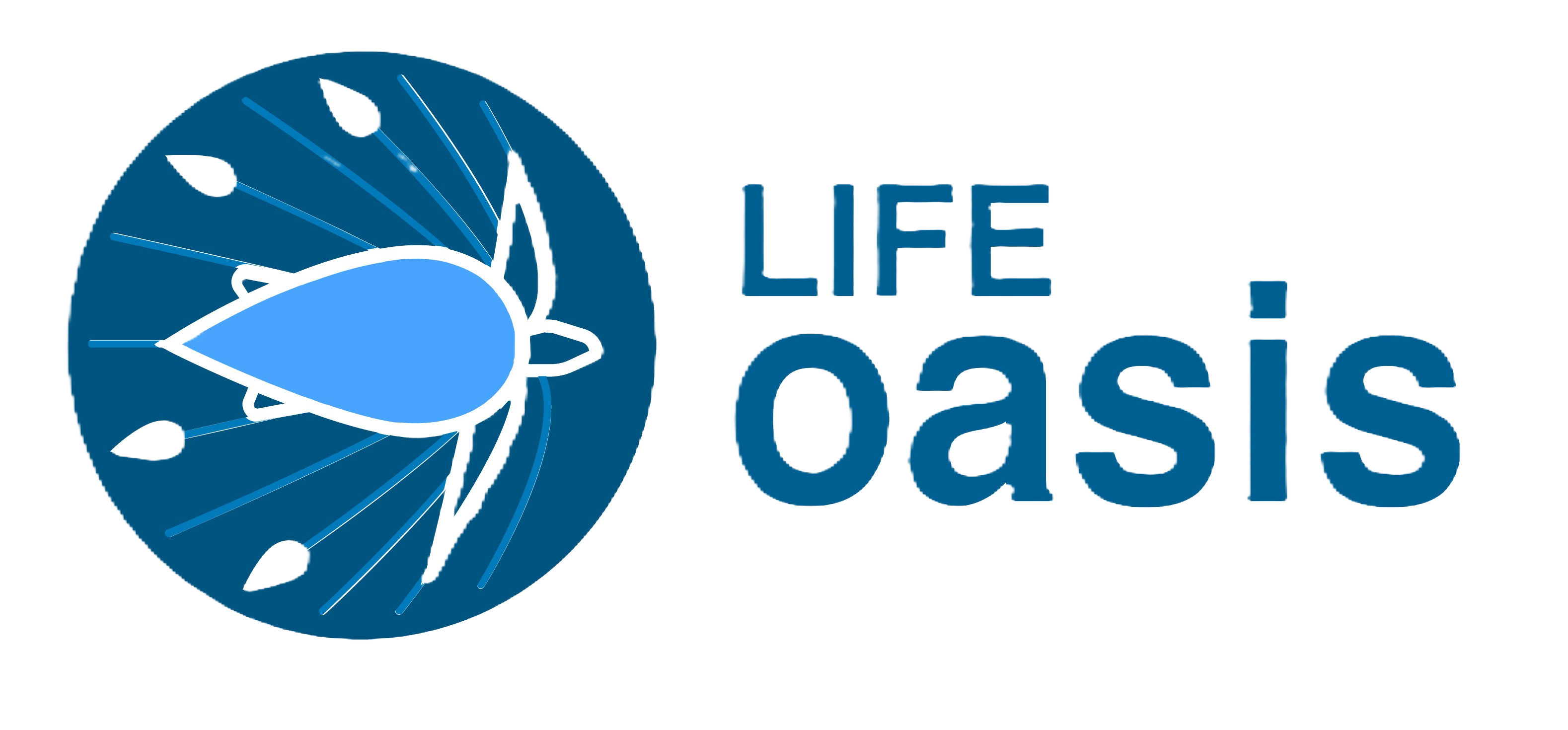

The LIFE OASIS project, funded by the LIFE Programme, addresses the challenges of marine litter and abandoned, lost, or discarded fishing gear (ALDFG) in the Mediterranean. A threat that jeopardizes the recovery of species like the loggerhead turtle (Caretta caretta). From 2024 to 2029, the project will engage a variety of stakeholders in the development of innovative, sustainable solutions to protect marine biodiversity and promote responsible fishing practices.
LIFE OASIS emphasizes collaboration with artisanal fishers, navigators, and patrol boats, recognizing them as custodians of the sea in activities like sea turtle rescue, reporting and recovering ALDFG.
LIFE OASIS uses the artisanal Mediterranean anchored FAD (Fish Aggregating Device) fisheries of Malta, Italy and Spain as a laboratory to create replicable solutions for improving ocean conservation and fostering sustainable fisheries throughout the Mediterranean and other regions.

Partner role
Place information about your role in the project here.
LIFE OASIS Consortium
ALNITAK, CSIC ICM, CSIC IMEDEA, University of Valencia, SATLINK, CEPESCA, University of Pisa, Stazione Zoologica Anton Dohrn, Filicudi Wildlife Conservation, Nature Trust Malta.
(Recomendation: include logos, find the logos in the folder)
More information
• Visit the website: https://lifeoasis.eu/
• Contact This email address is being protected from spambots. You need JavaScript enabled to view it.
• Follow on social media:
Place the icons here
o Facebook: https://www.facebook.com/lifeoasis.eu/
o Instagram: https://www.instagram.com/lifeoasis.eu
Partner List
- Stazione Zoologica Anton Dohrn
- Alnitak
- Cepesca (Confederaciòn Espanola De Pesca)
- Satlink
- Institut de Ciències del Mar
- Imedea
- Filicudi Wildlife Conservation
- Nature Trust Malta
- Università di Pisa
- Universitat de Valentia
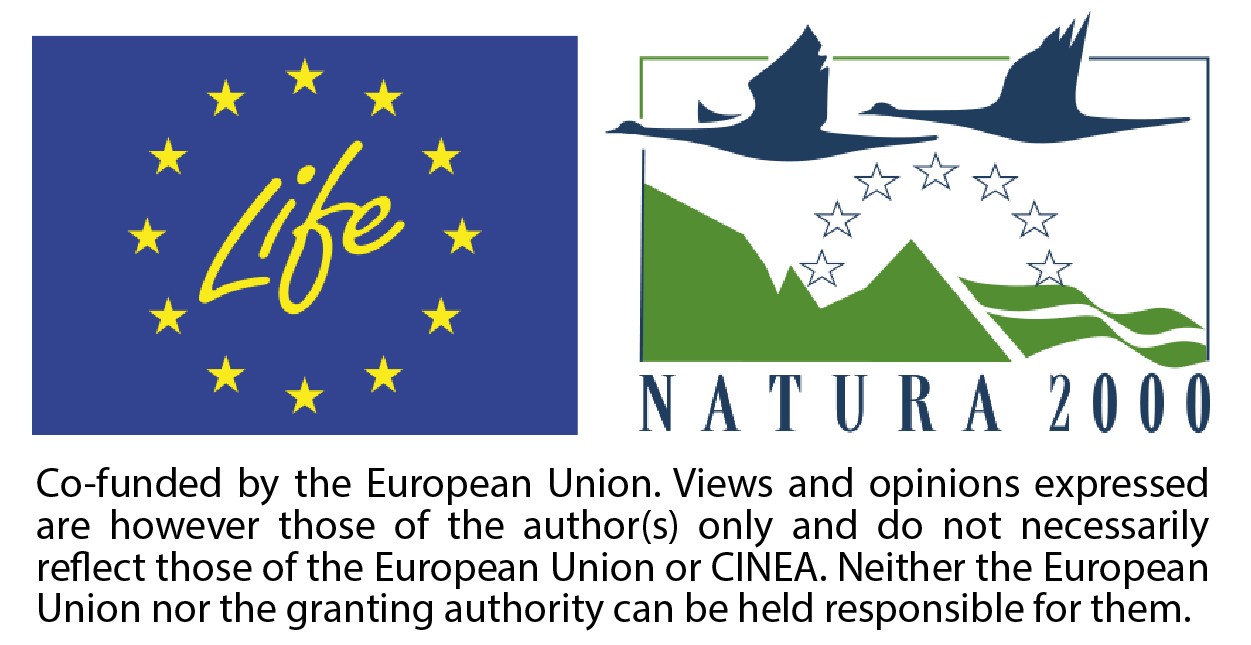 |
Brancaccio Award

The Paolo Brancaccio Scholarship is an initiative promoted by the Lions Club Napoli Megaride, the Stazione Zoologica Anton Dohrn, the Brancaccio family and - from the 2022 edition - by the SFC (Sistemi Formativi Confindustria) company of Rome.
The scholarship was established to keep alive the memory of Paolo Brancaccio, who died prematurely in 1995 following a diving accident.
The first edition was held in June 1996, with the only suspensions in 1998 for the death of Prof. Nino Salvatore and in 2020 and 2021 due to the health emergency linked to COVID.
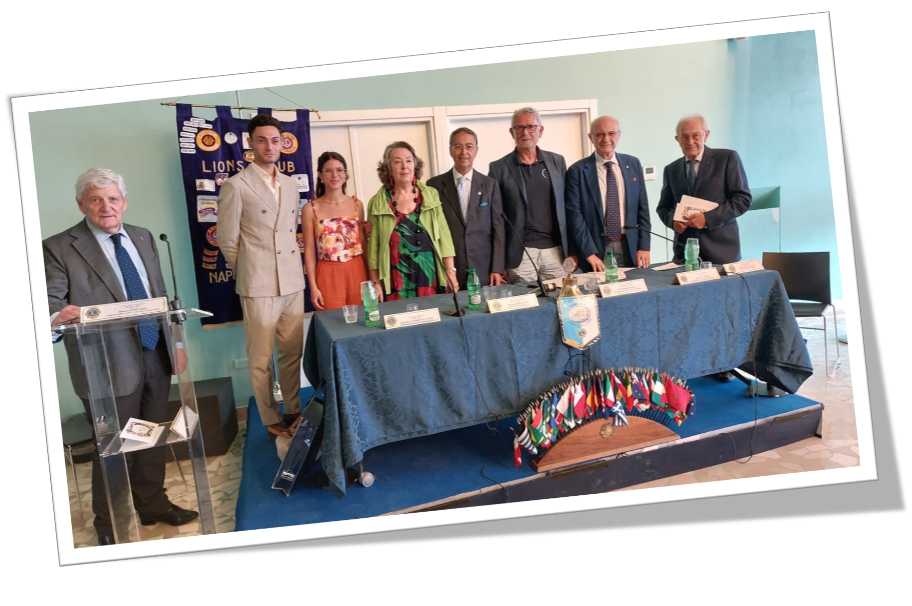
The Scholarship announcement requires that the winner carry out an internship of at least three months in a highly qualified foreign institute, to conduct research in the field of marine sciences.
Every year, an Organizing Committee defines the details of the call, evaluates the candidates' CVs and awards the prize during a public ceremony at the Stazione Zoologica. Starting in 2022, two young scholars are awarded.
Paolo Brancaccio, former President of the Leo group - Lions Club Napoli Megaride - in the year of its establishment, was a model student in the engineering faculty at the Federico II University of Naples. He had completed all 29 exams of the degree course with excellent grades and was ready to discuss his final thesis. After graduation, Paolo was supposed to participate in an internship abroad, organized with the support of Prof. Nino Salvatore, then President of the Stazione Zoologica.
“The Call for the Scholarship promotes young generations and requires that the winner complete an internship of at least three months at a prestigious foreign institute to conduct study activities in the field of marine sciences. In this sense, the initiative represents a unique opportunity that allows Paolo's dream to be carried forward, transforming his passion into a living and vibrant legacy for other lovers of the sea.”.”
DOWNLOAD here: Scholarship Brancaccio 2025
International Summer Schools BENTACS - BENthos TAxonomy CourseS
BENTACS - BENthos TAxonomy CourseS
TAXONOMY OF MOLLUSCS
Stazione Zoologica Anton Dohrn Naples
Italy, 09-13 June 2025
The Marine Organism Taxonomy (MOTax) core facility has launched a series of International Summer Schools (BENTACS - BENthos TAxonomy CourseS) focused on the taxonomy of the main groups of zoo-benthos from hard and soft-bottom communities in the Mediterranean Sea. The courses will target in particular researchers and technicians from scientific institutions and from national/regional environmental agencies interested in the study of benthos biodiversity and ecology. A combination of lectures and microscope sessions will provide participants with a general theoretical framework and practical experience.
The 3rd MOTax course will provide advanced training on the taxonomy and identification of molluscs. It will be held at the Stazione Zoologica Anton Dohrn in Naples on 09 – 13 June 2025. The course will be focused on selected families based on their ecological relevance, including species for which the taxonomic identification is particularly challenging.
Participants will be guided by expert taxonomists into the examination of preserved collections from different Mediterranean regions, as well as into the identification of their own samples. The course will offer an opportunity to discuss new challenges and perspectives into the fields of molluscs taxonomy and ecology.
Theoretical lessons
- ecological role of molluscs
- nomenclature, morphology, and glossary
- diagnostic characters of selected families/species living in the Mediterranean Sea
- molecular tools, species complexes, cryptic diversity, and phylogenies
- integrative taxonomy in the Mediterranean biota
Practical lessons
- microscope observation of selected families/species living in the Mediterranean Sea
Lecturers
Paolo Albano (Stazione Zoologica Anton Dohrn, Italy)
Fabio Crocetta (Stazione Zoologica Anton Dohrn, Italy)
Serge Gofas (University of Malaga, Spain and Muséum National d'Histoire Naturelle, Paris)
Maria Vittoria Modica (Stazione Zoologica Anton Dohrn, Italy)
Luigi Romani (Muséum National d'Histoire Naturelle, Paris)
Paolo Fasciglione ((Stazione Zoologica Anton Dohrn, Italy)
The course is open to 20 participants. Preference will be given to applicants with documented experience in taxonomy and identification of molluscs.
IMPORTANT INFORMATION
Applications: deadline 31 March
Participants will be notified by 15 April
Registration and payment are due by 30 April
Fee: 550 euro per person (coffee breaks, lunches, and social dinner included)
SCIENTIFIC COORDINATION: Fabio Crocetta e Paolo Fasciglione
ORGANIZERS: Sarah Ciancimino, Fabio Crocetta, Paolo Fasciglione, Rosanna Guglielmo e Diana Sarno
Info: This email address is being protected from spambots. You need JavaScript enabled to view it.
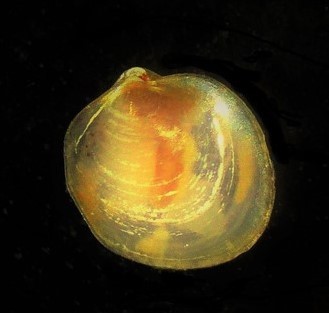
GreenList4MMPAs
GreenList4MMPAs is a project funded by the Interreg Euro-MED programme, which aims to promote effective and equitable management of Marine Protected Areas (MPAs) in the Mediterranean Region.
The project brings together six partners from five different countries. It aims to adapt the IUCN Green List to the Mediterranean marine context to support the Mediterranean MPAs in achieving their environmental and socio-economic objectives. The Green List is a Global Standard of Good Practice for Protected Areas. Over 27 months and with a total budget of €600,000, the GreenList4MMPAs project will develop specific indicators and methods for assessing MPAs, providing a useful and actionable tool for MPA managers.

Project Partners:
Stazione Zoologica Anton Dohrn (Italy), International Union For Conservation Of Nature And Natural Resources (IUCN, Spain), WWF Adria Association for the nature protection and conservation of biological diversity (Croatia), University of the Aegean – Research Unit (Greece), IUCN French Committee (France), Côte Bleue Marine Park (France).

LIFE European Sharks (LIFE22-GOV-IT-LIFE EU SHARKS 101114031)
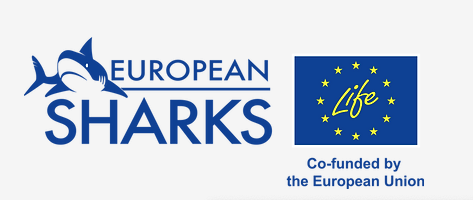
Summary
LIFE European Sharks will engage European citizens and marine stakeholders in a joint effort to safeguard Mediterranean sharks and rays, the most endangered group of marine species in Europe, threatened by unsustainable levels of accidental captures, pollution and habitat destruction. The long-term goal is to ensure the conservation and sustainable use of Mediterranean elasmobranchs, encouraging co-responsibility and promoting behavior change as a key factor in reversing their decline across the basin. As sharks and rays are often highly migratory and cross many national borders during their lifetimes, LIFE EU Sharks activities will touch Italy, France, Croatia, Spain and Slovenia, effectively involving the entire Central and Western Mediterranean in the conservation of these species. Here, it will strengthen the implementation of Union regulations and improve management, with an unprecedented capacity building that will reduce the mortality of protected species and increase the quality of data collection. It will co-design and experiment with professional fishermen's voluntary solutions to curb bycatch mortality, monitoring their socio-economic impact; inspire anglers to increase the survival of sharks and rays with catch&release and safer handling practices; divers will restore nursery areas and EU Sharks DiveSpots, reducing the risks of entanglement in marine litter and lost fishing gear. Outreach will increase public understanding of the essential role of these charismatic species in the health of Mediterranean ecosystems, shifting the perception of sharks from "dangerous" to "endangered". Chefs and food bloggers will encourage the consumption of local and more sustainable seafood products. A white paper will include the project's co-created, evidence-based and locally-tested solutions and key policy recommendations. It will be shared across the Mediterranean Sea to assist authorities, policymakers and communities in implementing shark conservation measures.
LIFE EU Sharks promotes the conservation of protected species and encourages responsible and sustainable interactions with sharks and rays by:
● Training fisheries officers and fishers to reduce mortality of protected species, promoting compliance with EU regulations and improving the quality of data collection.
● Testing with fishers voluntary actions to reduce shark and ray bycatch mortality, with an assessment of the socio-economic impact of these solutions.
● Promoting shark and ray catch&release among recreational fishers, and better handling techniques to increase post-release survival.
● Reducing the risk of entanglement in lost fishing gear with the cooperation of divers.
● Tapping into the knowledge of sea users to map important areas for breeding, feeding and migration of shark and rays, and stimulate authorities, policy makers and communities implement conservation measures.
● Increasing public understanding of the essential role that sharks and rays play in the Mediterranean ecosystem, changing the public image from ‘dangerous’ to ‘endangered’, and encouraging the consumption of local and more sustainable seafood.
Project Partners
1.SEUCILISTE U SPLITVU (CROATIA)
2.OFFICE FRANCAIS DE LA BIODIVERSITE (FRANCE)
3.COSTA EDUTAINMENT S.P.A (ITALY)
4.CENTRO DI COMPETENZA DISTRETTUALE SOCIETA CONSORTILE A RL (ITALY)
5.SOCIETA COOPERATIVA AGRICOLO FORESTALE - D.R.E.AM. ITALIA (ITALY)
6.COMANDO GENERALE DEL CORPO DELLE CAPITANERIE DI PORTO - GUARDIA COSTIERA (ITALY)
7.MEDSHARKS (ITALY)
8.SHORELINE SC (ITALY)
9.UNIVERSITA DEGLI STUDI DI FIRENZE (ITALY)
Project Lifetime
1 October 2023 to 30 September 2027
SZN Role
Coordinator
Principal Investigator for SZN
Antonio Terlizzi - Research Director “Head of the Integrative Marine Ecology Department”
Budget total
2.597 014.12 Euro
Contribution to SZN
846. 281.19 Euro
Dedicated website
www.europeansharks.eu










